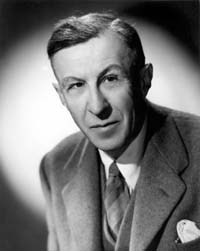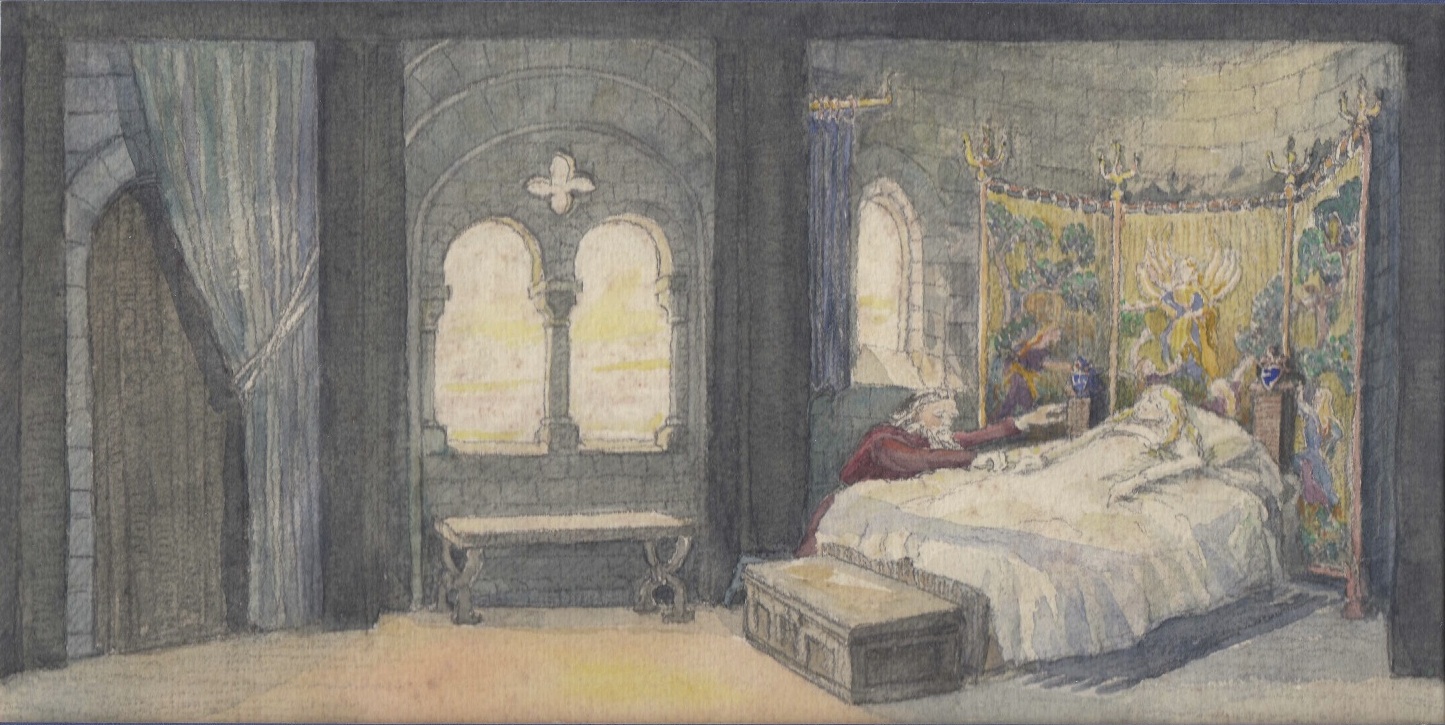
- 7 clarence grove
- horsforth
- leeds, LS18 4LA
- UK
- tel: 0113 258 1300
- order online
- www.editiondb.com
- info@editiondb.com
- Back to catalogue
- Recordings
- List of works
- Auto-biographical note
- Obituary
- P-G's school days
- Performances
- Memoirs
- Reviews
Humphrey Procter-Gregg, (1895-1980)
Humphrey Procter-Gregg (universally known to students and colleagues as "P-G") was born on 31 July 1895 at Kirkby Lonsdale, Westmorland. He went to school at King William's College on the Isle of Man, and was Organ Scholar at Peterhouse Cambridge, where he read history, graduating Mus.B. and M.A.. At the Royal College of Music he was Opera Scholar and studied composition under Stanford, and gained a studentship at the opera house of La Scala, Milan.
He became Opera Manager to the Royal College of Music, and was at various times stage manager and producer to the Covent Garden Opera Company, the British National Opera Company, and the Carl Rosa Opera Company, also working in a similar capacity at the Royal Manchester College of Music and the BBC Opera Section. In 1936 he became Reader in Music at the University of Manchester, founding the Music Department, and in 1954 became the university's first Professor of Music.
In 1958 he was Director of the Arts Council's Touring Opera, and also of the Carl Rosa Opera Company. In 1962, on leaving the university, he became the first Director of the new London Opera Centre, relinquishing the post in 1964, when he retired to Windermere and devoted himself to composition and opera translation. He was appointed CBE in 1972 and died on 13 April 1980.

P-G in 1955
Before his nearly thirty years as Head of Manchester University's Music Department P-G's career ran along altogether less academic lines, being specially concerned with the fate of opera in this country in the years following the First World War. It was in this context that his lifelong friendship with that greatest and most magnetic of all English conductors, Sir Thomas Beecham, first blossomed. Late fruit of this friendship was the book "Sir Thomas Beecham, conductor and impresario, as remembered by his friends and colleagues " which P-G compiled and edited as a labour of love in the years following Beecham's death in 1961.
A man of wide-ranging interests in all the arts, P-G was ever active in the cause of English music and musicians, and of opera in English, with many eminently practicable translations and several opera directorships to his credit. He was unflagging in his enthusiastic support of chamber music: more than one string quartet owes its success, and indeed its very existence, to his unstinting advice and encouragement. Towards the end of his tenure of the Chair of Music at Manchester he founded the Ad Solem Ensemble, and designed the University’s then concert hall, in Denmark Road, acoustically one of the best halls for chamber music in the north of England.
Like Beecham, P-G always had a deep love and understanding of the music of Delius. P-G's Violin Sonata No.1 in A minor was dedicated to Albert Sammons who premiered several works by Delius including the Violin Concerto (conducted by Sir Adrian Boult at a Royal Philharmonic Society concertin 1919). Sammons also edited the work for publication and championed it throughout the 1920s and 1930s, playing it in Beecham’s 1929 Delius Festival. In many of P-G's works this aesthetic affinity with Delius is undoubtedly declared, even though he always speaks with a distinctive and personal voice, quite unmistakeable once known. Indeed, as Edward Greenfield wrote in the Guardian in 1978 reviewing a BBC broadcast, “The announcers’ introduction promised us music influenced by Delius….but the style was fresher than that, more like early Bridge or Ireland.” There is certainly a profound feeling for the beauty - and essential sadness - of the natural world, perhaps particularly the ageless beauty of the hills, the lakes and the dales of his native Westmorland. Anyone who has seen the sun re-appear and heard birdsong after a hail shower over the Langdales in late April will see the point of the Westmoreland Sketch entitled 'Shower in Spring' straightaway. In his retirement Humphrey Procter-Gregg, C.B.E., Emeritus Professor of Music in the University of Manchester, lived at Windermere within sight of the Langdales. It is hoped that this series of publications will go some way to presenting his vision to a wider audience.
Watercolour by Humphrey Procter-Gregg of Act 5 of Debussy's Pelleas et Melisande.
